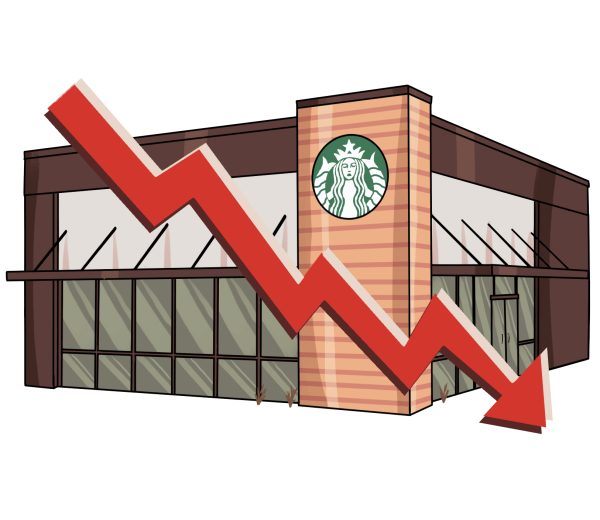Cheating: is it worth it?
A recent survey showed that cheating seems to have become a norm amongst the students of Liberty. Is this new trend something that should just be accepted? Or are there consequences to cheating unseen by the average student? Join the Patriot Press as we explore why and how students at Liberty cheat—and why they maybe should stop. *All student names mentioned in the below article are fictional in order to respect the privacy of the interviewees.
April 20, 2015
Quickly,” your friend says, “before the teacher comes back from the bathroom.”
You can feel a little trickle of sweat run down your brow; your hands are shaking as you poise your iPhone in the perfect position for a picture.
“I think I hear footsteps coming from outside the door,” another student whispers.
You hear the satisfying “snap” your camera makes when you take a picture on your phone. You swiftly fix the scattered papers atop your teacher’s desk. You shuffle back to your desk, and sit back down right as your teacher enters the room.
“I got the picture,” you whisper to your tablemates.
“The whole test? With answers?” asks your partner.
“Everything,” you reply.
…
Cheating is a growing trend in high schools across the nation. Studies done by Stanford University suggest that approximately 20% of students admitted to cheating in high school in the 1940s. In 2014 between 75% and 98% of students admitted to cheating.
According to a study done by the Patriot Press, 60% of students cheat at Liberty alone.
Increased parental, societal, and personal pressures to perform well in school have become overwhelming for some students, and may attribute to cheating within schools.
“We have a culture where we put tremendous pressure on kids,” math teacher Ron Thruelsen said. “When there’s so much pressure to do well, people get really desperate.”
The Issaquah School District is particularly competitive, and students at Liberty perhaps feel the pressure to succeed more than many other students outside of the district.
“Is cheating more of an issue here in the Issaquah School District than it is in other places? Well, I would think so,” Principal Josh Almy said. “Doing well academically is extremely important to our kids and our families, so there is a tremendous amount of pressure that students and parents put on themselves to do well in school.”
Even with the understandable pressures of high school life, it may come as a shock to learn that 37% of Liberty students are self-proclaimed “repeat-offender” cheaters, meaning that over one-third of the student body considers cheating a part of its normal routine.
Students are even finding new and more creative ways to cheat, ways that they believe will help them alleviate the pressures of attending Liberty by ensuring that they get good grades.
“One time in a class that will go unmentioned, I got 106% on a test that I didn’t even understand the material on,” junior Samuel Gator said. “He let me come back at lunch, so I wrote down all of the questions and went to someone and made them teach me how do to every single one before I finished the test.”
Some Liberty students also find ways to get pertinent information at home to prepare them for the assignment or test at school.
“I had friends give me pictures of a test, and I went home and I did research on the answers. I wrote them on a notecard, brought the notecard to school, and took the test,” senior Taylor Kimball said. “Luckily, I got a pretty good grade. I even purposely missed some so it didn’t seem like I knew it completely. It’s a strategy.”
Where some students feel pressured into cheating as the only means of achieving academic success, other students report that their time can be spent doing things they believe are more valuable than studying, and believe that school is a system meant to be taken advantage of.
“It’s human nature to cheat. I don’t need to justify it to myself,” Gator said. “If the opportunity is presented to me, I am going to take it.”
And yet, still more students have testified that they are simply too lazy to do their own work, so cheating, for them, is an easy way out.
“Cheating is just easy,” sophomore Stewart Hewitt said. “I don’t want to stay up doing homework until one in the morning, but I might as well lie in my bed until then instead.”
And with the school system seemingly centered on nothing more than grades, students like junior Zachariah Brighton find it hard to muster up motivation for anything other than a good grade. Some students report that understanding content material isn’t at the top of their list of priorities.
“It’s hard to be successful without good grades,” Brighton said. “Laziness is justifiable, though, because 90% of what we learn isn’t applicable.”
Many students are under the impression that they merely need to obtain the grades necessary to get into college, rather than the knowledge that may be necessary to succeed.
“I look forward to the future, but all people (like college admissions officers, employers, etc.) care about right now is your grades and whether or not you a have a good ‘profile,’ Kimball said. “At this point, you just kind of do what you have to do.”
Most people know cheating is wrong, but it seems that cheating has become a new cultural norm. That being said, cheating can have many unforeseen consequences. Cheating doesn’t just affect how your grade will turn out—many people believe it will affect how your character develops as well.
“You have to have a work ethic to do well but you also have to have a moral ethic; you need to be able to tell right from wrong,” Thruelsen said.
Consider Mahatma Gandhi’s famous quote: “Your habits become your values; your values become your destiny.”
Although a seemingly drastic thought, many will testify that cheating can certainly become ingrained into a person’s character.
“I understand if you didn’t study or if you didn’t have time, but when you cheat you are crossing over into a level of being immoral,” Spanish teacher Meghann Thompson said. “What does that say about your character?”
But, aside from the deemed immorality of cheating, cheating can also aid in forming some bad habits that can carry well into adulthood.
“You may get away with cheating for a while, but if that becomes a part of your mode of operation, you will ultimately get caught,” Almy said. “The later you get caught in life, the more it stings, and the more impactful it is on your life.”
Cheating doesn’t always end in high school, and it becomes harder to get away with the longer it goes on.
“If you go to college, cheating is a huge issue; you can kicked out of the entire college,” Thompson said. “Ultimately, what you’re committing is fraud. I actually know people in jail for things like mortgage fraud. If you cheat the system now, are you going to be cheating the system in ten years?”
Even if they know the consequences of cheating, many students say that they will stop at nothing to get a good grade. So, how can cheating be avoided while still maintaining a thriving educational community at Liberty?
Firstly, students can take advantage of who are arguably the most invaluable resources offered at Liberty: teachers. Many teachers are a lot more inclined to help kids succeed than students might think. After all, helping kids understand is one of the best ways to prevent cheating.
“I think that if a student is genuinely not understanding class material, and they are studying, then there are a lot of options,” Thompson said. “They can come and talk to me and I can give them some study strategies. They don’t need to resort to cheating.”
Moreover, preventing cheating doesn’t have to be entirely up to teachers. Students have the power to move away from cheating, and towards success resulting from hard work. Working in study groups, hiring tutors, and getting extra help from teachers are just a few ways that students can take initiative and avoid cheating.
“Creating a school culture centered on collaboration rather than cheating can really decrease the lack of academic confidence,” Almy said. “That’s a culture that kids can create.”
See more: What is cheating?









